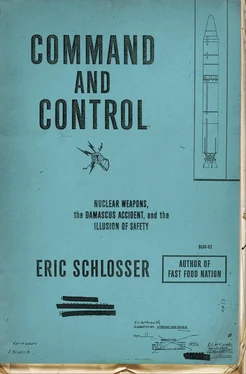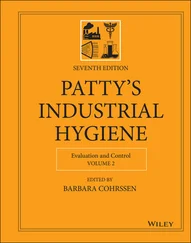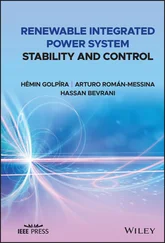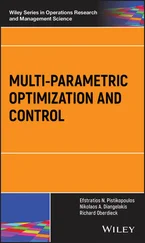Members of the Disaster Response Force were among the first to leave the scene of the disaster.
• • •
MICHAEL MAZZARO, the missile crew commander at 4–7, was resting in the back of the ambulance when the missile blew up. Al Childers, the deputy commander, sat beside Ronald Fuller, the missile facilities technician, in the security police pickup that had carried them away from the complex hours before. The truck was parked at the entry control point, about thirty feet down the access road from Highway 65. They were listening to Livingston and Kennedy on the radio. Rodney Holder, the crew’s missile systems analyst technician, was in a truck a few hundred feet closer to the launch complex. None of them thought that the missile was about to explode. Holder hoped that somebody would arrive the next morning, figure out what to do, and fix the problem. They were just sitting there, waiting for that somebody to arrive.
Childers was surprised by the bright white flash. The sun seemed to have appeared in the sky. He knew the warhead hadn’t detonated — and yet, somehow, felt it had.
Fuller opened the door and dove into a ditch.
Holder saw the flash and ducked, heard things hitting the truck, waited a few seconds, took a deep breath, and found it remarkable that he was still alive. Then he got out of the truck and ran toward the highway.
Childers, Holder, and Fuller bumped into one another at the back of the security police pickup. They’d all had the same thought, at the same time: grab the gas mask that you wore out of the launch complex. But the masks were gone, and security police officers were now wearing them. The missile crew members climbed into the backseat of the truck, as the loudspeaker called for everyone to evacuate. Sergeant Thomas Brocksmith, who’d picked them up after they left the control center, got into the driver’s seat. The sky had turned deep red, and Holder worried that a cloud of oxidizer was about to engulf them.
“I need to get the hell out of here before the oxidizer starts falling,” Holder thought. “Everybody at the complex is dead, and Rodney has no need to be here.”
Vehicles were pulling out haphazardly, people were running around in the dark, the evacuation seemed chaotic, and Childers became worried that someone might get hurt. He got out of the pickup truck to direct traffic. It was a thoughtful, well-intended thing to do. Brocksmith drove off without him. Cars and trucks sped past him. Everyone ignored him, and yet somehow nobody got hurt.
About fifty Air Force officers and airmen were at the Titan II site when the missile exploded. Most of them drove to Damascus at high speed. But none of the PTS crew members left. Jim Sandaker had started the night at the barracks, recruiting volunteers to help save the missile. He expressed the PTS point of view, bluntly, when an officer told him to evacuate.
“Screw you,” Sandaker said. “I’m not leaving until I have my friends or their bodies.”
• • •
OUTSIDE THE WATER TREATMENT BUILDING, Major Wallace and Sergeant James hid beneath one of the light-all units after the missile blew. As rocks and concrete and little pieces of molten steel landed all around them, James thought: I just want everything to stop falling. The debris lacerated one of his elbows, burned the other, and tore up his left leg. But James was able to stand, and Wallace helped him put on a gas mask. Wallace hadn’t even been scratched. They both wondered what had happened to Silas Spann, who’d been a few feet away from them, seconds before. Now there wasn’t a trace of him.
• • •
THE MOMENT THE MISSILE EXPLODED, Silas Spann began to run. He didn’t need to see what was happening — he knew what was happening and instinctively bolted. Hiding under the light-all unit would have made more sense, but running away from the explosion felt a lot better. Spann ran toward the entry control point as fast as he could.
• • •
COLONEL MORRIS WAS REACHING for the radio inside his pickup truck when the explosion blew out the windshield. The truck was parked near the gate to the complex and the hole they’d cut in the fence. Morris felt like laughing, as the truck shook and got pounded with debris. It seemed comical: he was sprawled across the front seat and couldn’t get his legs inside the truck, no matter how hard he tried. The door slammed hard onto his left leg. And then he lay there, waiting for something big to hit the pickup. Morris looked up, saw the immense pillar of fire rising from the silo, and put his head back onto the seat.
Hukle was sitting on the tailgate. He managed to crawl across the bed of the truck and hide behind the cab, keeping his eyes tightly shut, amid the roar. Through his eyelids he saw a brilliant red blur. His hands got burned, and something shattered his right kneecap.
Hanson was standing next to the door of the pickup, right beside Colonel Morris. Hanson saw two explosions. The first one shot flames twenty-five feet high out of the exhaust vents, and the second obliterated the silo. The blast wave inflated Hanson’s uniform like a balloon, lifted him off his feet, tossed him down the road, and sent enormous steel beams flying past him.
Christal was standing next to Hanson. He saw the first explosion, missed seeing the second one, flew into the air, and landed twenty feet away. Christal covered his head as the debris fell, got up, looked around, thanked God for sparing his life, and checked to see if all his hair had been burned off. It hadn’t. But the left side of his face and both of his hands were burned.
Greg Devlin was standing about two feet from the gate, facing the silo. The blast wave knocked the wind out of him, like a punch to the stomach, picked him up, threw him onto his back, and slid him fifty feet down the asphalt road. Devlin felt completely under the control of some powerful, malevolent force, unable to move or resist it, propelled by air that seemed to have become rock solid. As Devlin slid down the road on his back, he saw molten steel and pieces of concrete flowing by him like lava.
“Oh shit, you ain’t gonna live through this,” Devlin thought. “I just hope it’s not painful.”
Seconds after the explosion, Devlin was lying in the road, feeling dazed and bleary, like he’d been coldcocked in a boxing match. And then he heard a loud voice in his ear yelling, “Run, run!” The voice scared the shit out of him. He didn’t see anybody, anywhere nearby. Devlin got up, ran for about five steps — and got knocked down again by steel rebar that had just fallen from the sky. It struck his right ankle, tearing the Achilles tendon. The rebar hung from a block of concrete about fifteen feet high and thirteen feet wide. The concrete was part of the silo door abutment. It had landed in the middle of the road, and if he hadn’t gotten up and started to run, it would have landed on him. When Devlin opened his eyes, he saw the shadow of this huge block of concrete, thought the Titan II had landed right next to him, and said to himself, “Oh, my God.”
• • •
COLONEL MORRIS LOOKED UP AGAIN, when debris stopped falling onto the truck, and saw that flames were still rising from the silo. He figured it was time to leave. He got out of the truck, and the silhouette of something enormous in the middle of the road made him feel disoriented. Morris heard someone call for help. It was Hukle, sitting in the bed of the pickup, with his RFHCO suit pulled down to his knees. One of the knees was torn open, and Hukle said that he couldn’t walk. Morris pulled the RFHCO suit off him, picked him up, put him over a shoulder, and carried him around the piece of concrete, big as a mobile home, that was blocking the access road.
Читать дальше












